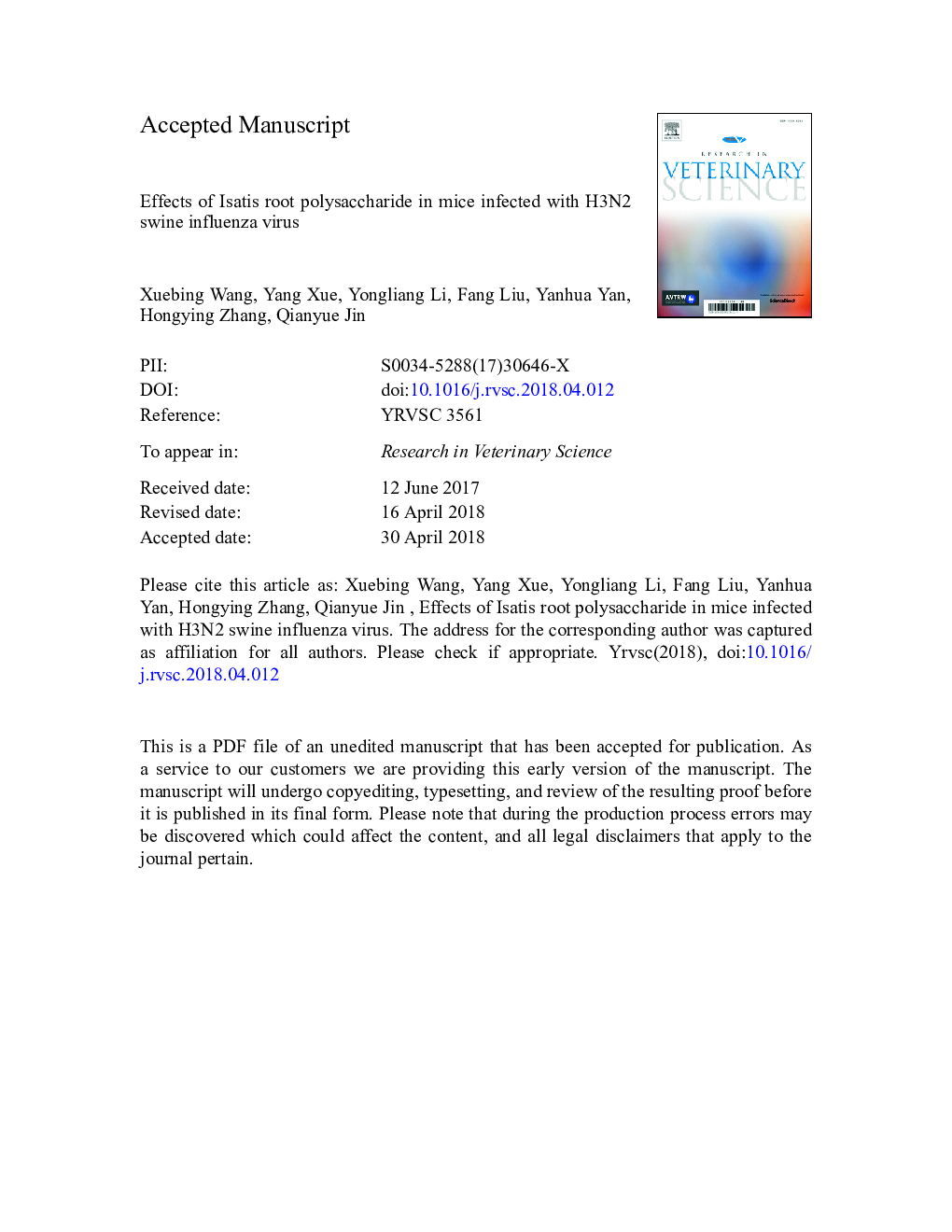| Article ID | Journal | Published Year | Pages | File Type |
|---|---|---|---|---|
| 8503915 | Research in Veterinary Science | 2018 | 31 Pages |
Abstract
Isatis root polysaccharide (IRPS) has gained attention in the field of virology. However, very few studies have evaluated the effects of IRPS on H3N2 swine influenza virus (SIV). The antiviral activities of IRPS against SIV were investigated in vitro through three different modes and in vivo in an experimental mouse model of SIV infection. Mice were treated by oral gavage with various doses of IRPS before being experimentally infected with SIV A/swine/Henan/2010(H3N2). The antiviral effects of IRPS were evaluated by clinical signs, weight, histopathology, cytokine levels in lung homogenates and serum nitric oxide (NO) and IgG levels at 2, 5 and 9â¯d post-infection. IRPS demonstrated an inhibitory effect on SIV in Madin-Darby canine kidney cells. Additionally, IRPS significantly improved symptoms, reduced pathological changes and enhanced serum levels of NO and IgG in SIV-infected mice. Furthermore, detection of cytokines in lung homogenates showed IRPS could alter cytokine production to improve immune responses and systemic ability to repair inflammation. Moreover, IRPS extenuated the pulmonary inflammatory response. The results show that various concentrations of IRPS exert antiviral effects in vitro and in vivo. In an experimental mouse model of SIV infection, IRPS at a dose of 75â¯mg/kg was effective.
Keywords
Related Topics
Life Sciences
Agricultural and Biological Sciences
Animal Science and Zoology
Authors
Xuebing Wang, Yang Xue, Yongliang Li, Fang Liu, Yanhua Yan, Hongying Zhang, Qianyue Jin,
